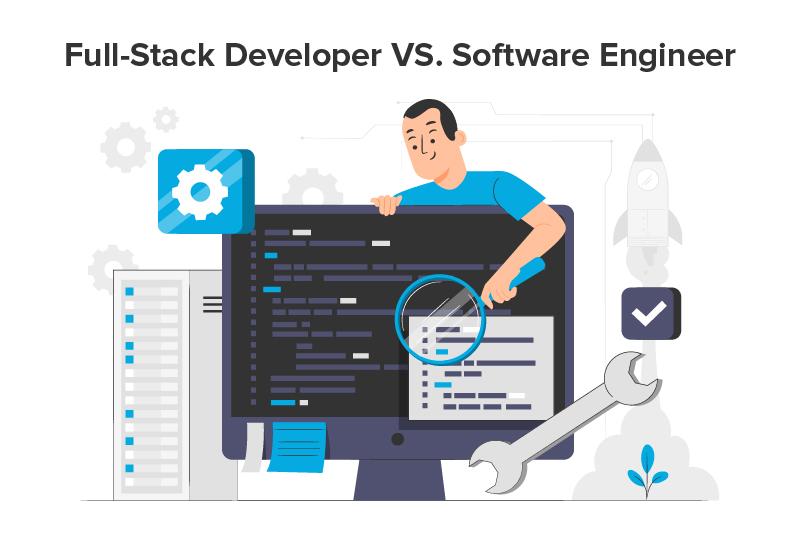Optimize Your Resources with Professional Software Engineering Staffing Solutions
Wiki Article
Devoted Developers vs. In-House Teams: Which Is Right for You?
The decision in between making use of devoted programmers and keeping an in-house team is a considerable one that can influence the trajectory of your tasks and overall service approach. Committed programmers give a level of versatility and specialized proficiency that can be useful for specific, temporary campaigns. Alternatively, internal groups add to a natural business society and a nuanced understanding of long-lasting objectives. By checking out critical factors such as budget, project scope, and desired control, you can better determine which approach aligns with your business demands. The effects of this option prolong beyond prompt results-- think about the broader influence on your organization landscape.Comprehending Dedicated Programmers
The expanding demand for specialized abilities in the technology sector has actually caused the introduction of devoted programmers as a feasible service for many companies. These experts are generally acquired on a task basis, enabling firms to take advantage of particular competence without the lasting commitment related to permanent hires. Committed programmers are often ingrained within a customer's group, offering versatility and scalability to meet project requirements.This model permits companies to access a global ability swimming pool, which is specifically advantageous in a quickly developing technical landscape. Committed programmers can be sourced from different geographical locations, ensuring that firms can locate the ideal ability at competitive rates. They commonly bring a wide range of experience and understanding, having actually functioned on varied jobs across various markets.
Additionally, specialized programmers can concentrate specifically on the jobs available, enhancing productivity and effectiveness. They are equipped to incorporate seamlessly into existing process, working together very closely with internal teams to accomplish project purposes. This strategy not only decreases the problem of recruitment and training however additionally enables companies to stay nimble, adapting rapidly to altering market needs and technical developments.
Advantages of In-House Teams

Additionally, internal teams tend to have a deeper understanding of the company's objective, values, and goals. This alignment can enhance staff member engagement and motivation, as team members feel more connected to their work and the company's success. In addition, having a specialized in-house team allows for much better placement of purposes and strategies, as these members are continually concentrated on the firm's priorities.
In-house groups likewise facilitate quicker decision-making procedures, as they can respond much more rapidly to challenges and changes. The recognized partnerships and knowledge with firm methods permit streamlined workflows and reduced miscommunication. Eventually, the combination of a cohesive culture, alignment with organizational goals, and effective communication makes in-house teams an important asset for many organizations, particularly those looking to cultivate lasting development and advancement.
Price Factors To Consider
When examining expense considerations, both devoted developers and in-house teams existing distinctive monetary ramifications for organizations. Involving specialized designers usually includes a pay-per-project or per hour price version, which can be cost-efficient for organizations with changing job needs. This technique enables flexibility in scaling sources up or down, guaranteeing that companies just pay for the solutions they need.On the other hand, internal groups involve fixed prices, consisting of incomes, benefits, and overhead costs such as workplace and equipment. While this version provides better control and instant schedule of resources, it might result in greater long-term expenditures, particularly if the work does not justify a full time staff.
Additionally, firms ought to think about the covert costs connected with recruitment and training of in-house workers, which can better strain budget plans. In some instances, the time and resources invested in handling an internal group can detract from the organization's core company purposes.

Project Management and Adaptability
Task administration and versatility are vital elements that influence the selection in between in-house groups and specialized developers. Devoted developers normally offer a high level of versatility, allowing companies to scale sources up or down based upon project demands. This dexterity can be especially beneficial for organizations experiencing changing workloads or those looking for to introduce swiftly. Committed groups typically have established procedures for handling tasks successfully, leveraging specific methods like Agile or Scrum, which help with repetitive progress and flexibility.
Inevitably, the option between in-house groups and devoted developers rests on the desired degree of flexibility and the specific job management requirements. Firms need to assess their operational characteristics, job intricacy, and resource schedule to figure out which option straightens best with their critical objectives.
Making the Right Selection
Selecting the appropriate advancement strategy-- internal teams or specialized programmers-- needs a mindful assessment of different variables that align with a business's strategic goals. software development partner. Initially, consider the nature of the project. Dedicated designers might be more suitable if it demands specialized abilities or a fast scale-up. Alternatively, internal teams can wikipedia reference provide much better connection and assimilation with existing employees.Following, review your spending plan. Committed developers commonly offer an affordable option for short-term projects, while in-house groups might incur higher lasting expenditures because of salaries, advantages, and overhead costs. Assess the degree of control and cooperation preferred; in-house groups generally promote more powerful communication and positioning with firm culture.
Furthermore, think about the moment framework. If immediate results are essential, committed designers can be onboarded rapidly, whereas developing an internal group takes some time for employment and training. Finally, weigh the lasting vision of your organization. If constant development is essential, purchasing an internal team might yield far better returns in time. Inevitably, the decision depends upon a comprehensive evaluation of these elements, making certain alignment with your firm's overall goals and functional needs.
Verdict
In conclusion, the decision between in-house teams and devoted developers rests on task demands and business purposes. Dedicated designers give adaptability and specific knowledge, making them appropriate for short-term efforts. On the click here for more other hand, in-house teams cultivate a natural society and much deeper positioning with long-lasting goals. Careful evaluation of budget constraints, task timelines, and wanted control levels is important for identifying the most ideal technique, making sure positioning with strategic top priorities and functional efficiency.The choice between making use of specialized developers and keeping an in-house group is a significant one that can influence the trajectory of your jobs and total service strategy.Job management and versatility are critical aspects that influence the option in between internal teams and specialized programmers. software development partner.In comparison, in-house teams may succeed in maintaining a consistent job monitoring framework due to their familiarity with the company's society and long-term goals. Devoted designers often provide a cost-efficient solution for short-term jobs, while in-house groups might sustain greater lasting expenses due to salaries, benefits, and overhead costs.In final thought, the choice in between internal teams and devoted designers pivots on task needs and business purposes
Report this wiki page